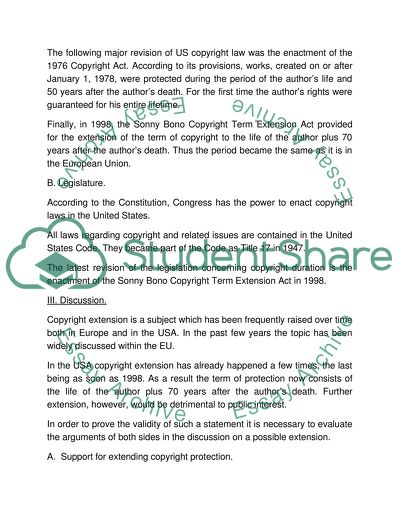Cite this document
(“Extending Duration of Copyright Protection: A Detriment to Public Term Paper”, n.d.)
Retrieved from https://studentshare.org/law/1419806-extending-duration-of-copyright-protection-a-detriment-to-public-interest
Retrieved from https://studentshare.org/law/1419806-extending-duration-of-copyright-protection-a-detriment-to-public-interest
(Extending Duration of Copyright Protection: A Detriment to Public Term Paper)
https://studentshare.org/law/1419806-extending-duration-of-copyright-protection-a-detriment-to-public-interest.
https://studentshare.org/law/1419806-extending-duration-of-copyright-protection-a-detriment-to-public-interest.
“Extending Duration of Copyright Protection: A Detriment to Public Term Paper”, n.d. https://studentshare.org/law/1419806-extending-duration-of-copyright-protection-a-detriment-to-public-interest.


